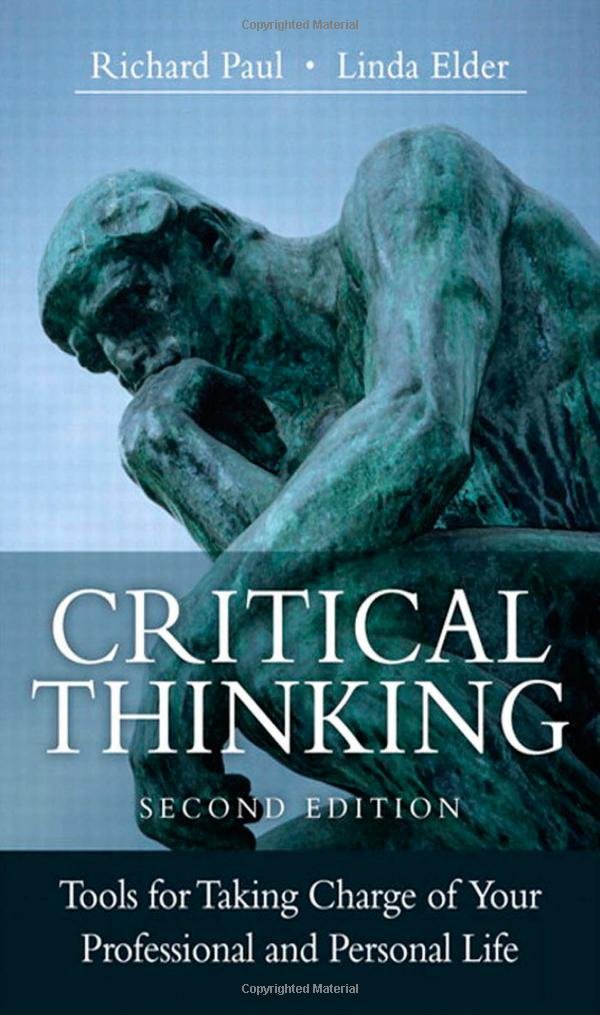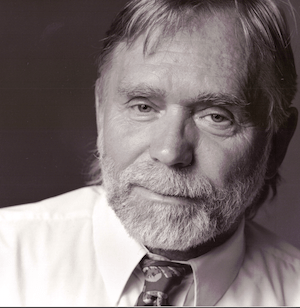Critical Thinking Summary

4 min read ⌚
 Tools for Taking Charge of Your Professional and Personal Life
Tools for Taking Charge of Your Professional and Personal Life
Critical thought has the power to change your life.
Avoid being caught having negative sensations running around in your mind, try to transform your mindset and see the results!
Who Should Read “Critical Thinking”? And Why?
Overthinking is not an aspect of critical mentality; these two terms are not related. Overthinkers often have the habit to judge themselves only by their temporary situation.
If you cannot adapt to the environmental uncertainty, you’ll end up depressed and lost. The world is one big change, don’t get involved in the thinking process without seeing the big picture.
What matters is – how you lay down the foundation for success. “Critical Thinking” is a book which is prescribed for people who are brave and eager enough to explore the possibilities of today.
About Dr. Richard W. Paul & Dr. Linda Elder
 Dr. Richard W. Paul is a writer who heads the National Council for Excellence in the methodology of Critical Thinking.
Dr. Richard W. Paul is a writer who heads the National Council for Excellence in the methodology of Critical Thinking.
 Dr. Linda Elder is currently an author, an educational psychologist and the president of the Foundation dedicated to Critical Thinking. Despite her executive role at the Center for Critical Thinking, she alongside Paul also promotes personal development and research on the topic.
Dr. Linda Elder is currently an author, an educational psychologist and the president of the Foundation dedicated to Critical Thinking. Despite her executive role at the Center for Critical Thinking, she alongside Paul also promotes personal development and research on the topic.
“Critical Thinking Summary”
Since the beginning, the world has always been subjected to change. No person can stop the evolution – referring to technological growth, inventiveness, and most importantly – nature.
The complicity on the topic makes it even harder to forecast any modification which may appear at any time. Even if you try to hide and fight it, you’ll not be able to stop the process of transformation. Dangers, as well as possibilities, lurk around, no matter how you approach life.
It is only a part of the game, environmental issues like the pollution have become the main threats to our community. Critical thinking is a new discipline that answers the question – How to improve my decision-making abilities in challenging circumstances?
The problem appears when people take critical approach too seriously, like something they cannot imagine doing. In fact, your mindset is developed by you, don’t misuse the term by adopting a perspective by which the “ordinary” negative thinking mentality is much more easier to apply.
Sure, it takes some time and effort to master the useful critical-thinking skills, but complaining aside, critical thinking is not harder than the uncritical one.
Before you start making assumptions, examine the way your mind works. The analysis process refers to your “logic-center” which by some standards is a reflection of decision-making attitude. As the authors clarify, approach yourself with a dose of curiosity.
Every person is probably thinking – I know myself, there is no need for this step. Nevertheless, the statistics have shown that the mistakes we made in our lives are a consequence of not knowing thyself. Open your heart to the possibility that you may have been wrong all along.
Only a small portion willingly admit that they are not in a position to control the life-flow. Total control is not advisable either, even though we want it. Success and failures are only concepts, phenomena which float in our heads.
Admirable thinkers do not rely on their outstanding skills; they use their intellectual virtues to answer critics. Just like any other human feature, the intellectual virtues are also interdependent sensations.
The introduction covers the complexity of the today’s society by assessing the damage till now.
The 21st century conveys a strong liberal message which by some modern intellectuals is a fraud. They prescribe this phenomenon to the knee-jerk reactions and short-orientated thinking mentality.
According to Richard W. Paul and Linda Elder, critical thinking assists people to cope with the changeableness of the digital life and become more comfortable making decisions. Its point extends far beyond the simple mastering of the uncertainty; it reaches the gates of emotional and intellectual abilities.
It is not easy to simply walk in people’s lives without an invitation, giving advice and waiting for them to receive it well. Igniting the fire is an individual privilege, encourage yourself to be one of those people who wake up every morning thinking how to improve.
You probably know a lot of complainers, who blamed someone else – for their own life failures. Even if somebody else played its part to sabotage your promotion, for example, the real culprit is always you.
Key Lessons from “Critical Thinking”
1. Adopt long-term perspectives
2. Sociocentric point of view
3. Fight your deficiencies with the intellect
Adopt long-term perspectives
Skillful thinkers place their hope in themselves. They don’t like being deceived, nor apply it to others, that is their strength.
These people put their personal gain aside by focusing on learning and assessing skills.
Sociocentric point of view
Sociocentrism is a new term that stimulus the group rather than the individual. Egocentrism, for example, is a reflection of the capitalist rule, as a manager, you must handle this kind of situations by placing the team up front.
Provide your organization with norms and principles on how to behave, to ensure that everyone follows your perspective. A group may refer to a nation, or some department – it doesn’t matter.
Fight your deficiencies with the intellect
Strategic thinking is a method which takes you one step further in the process of thinking. It helps you acknowledge the way you should see things. Before you start making conclusions, analyze the environment and yourself.
Diagnose your imperfections and apply intellectual activities to defeat them.
Like this summary? We’d Like to invite you to download our free 12 min app, for more amazing summaries and audiobooks.
“Critical Thinking” Quotes
Critical thinking is thinking about your thinking while you're thinking in order to make your thinking better. Share on X Critical thinking is the disciplined art of ensuring that you use the best thinking you are capable of in any set of circumstances. Share on X All of us are deeply socially conditioned. We do not naturally develop the ability to effectively critique social norms and taboos. Share on X Critical thinking, when applied to decision making, enhances the rationality of decisions made by raising the pattern of decision making to the level of conscious and deliberate choice. Share on X There is nothing more practical than sound thinking. Share on XOur Critical Review
With this in mind, we have no other choice than support the “Critical Thinking” claim on the significance of proper mind-approach.
The book also outlines valuable skills and methods to be used in various situations. As such, this masterpiece is prescribed for all those people willing to learn the art of critical thinking.








